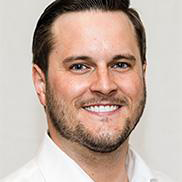Currently, there are more than 16.9 million cancer survivors living in the United States, and this number is expected to exceed 22.1 million by 2030. Cancer survivors are living longer with from 49% in 1975 to 67% in 2014. However, differences remain in death rates among cancer survivors from underserved populations due to various disparities. Among cancer survivors, inequalities are widening over time.
Currently, there are more than 16.9 million cancer survivors living in the United States, and this number is expected to exceed 22.1 million by 2030. Cancer survivors are living longer with from 49% in 1975 to
67% in 2014. However, differences remain in death rates among cancer survivors from underserved populations due to various disparities. Among cancer survivors, inequalities are widening over time.
Education, income, lifestyle and health behaviors, geographic location, rurality, race, ethnicity, and genetic ancestry are factors that may affect cancer death rates, with the greatest disparities appearing in mortality from lung, colorectal, prostate, and cervical cancers. These factors play a significant role in health disparities and can affect access to cancer care. For example, living far away from cancer centers and having limited access to cancer treatment options or clinical trials, low socioeconomic status (especially in rural areas), and lack of employment or health insurance can all make it difficult to get the best cancer care.
Unlike race and ethnicity, which are self-reported measures, genetic ancestry is derived directly from biospecimens and gives an individual-level distribution of ancestry (e.g., percentages of African, Asian, and European ancestry). Ancestry captures genetic variation within individuals and may be used to predict response to cancer treatment or the impact of lifestyle factors, and it can be evaluated as a potential health disparity measure.
The awardees propose to explore how health disparities and genetic ancestry relate to all-cause and cancer-specific mortality among cancer survivors, using data from the Prostate, Lung, Colorectal, and Ovarian Cancer Screening Trial. They hope the research will benefit underserved cancer survivors and inform tailored interventions.





















